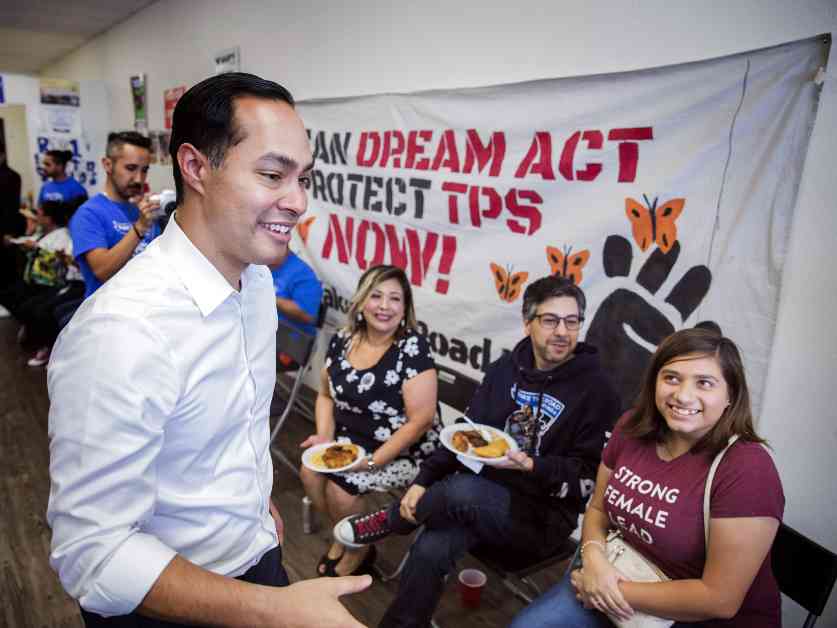Nevada Latinos express disappointment over judicial pause for ‘Parole in Place’ program
The recent decision by a Texas judge to temporarily block a Biden administration program that could provide legal residency for hundreds of thousands of undocumented spouses has left many Latino advocates in Nevada disheartened. The program, known as “parole in place,” was seen as a lifeline for many individuals seeking a pathway to citizenship. However, the ruling has highlighted the need for lasting immigration policy change to come from Congress rather than executive action.
At an event hosted by the immigrant advocacy group Make the Road Nevada in Las Vegas, attendees expressed their frustration with the court’s decision. Former Secretary of Housing and Urban Development Julian Castro, who spoke at the event, emphasized the importance of pushing for immigration reform through legislative channels. He urged individuals to make their voices heard and hold politicians accountable for enacting meaningful changes in immigration policy.
Parole in place offers deportation protections for undocumented spouses and stepchildren of U.S. citizens, as well as a potential pathway to citizenship. To qualify for the program, applicants must have been married to a U.S. citizen before June 17, 2021, when the program was first announced. They must also have a clean criminal record and demonstrate continuous residency in the United States for at least 10 years. On average, eligible individuals have lived in the U.S. for 23 years, according to federal government estimates.
The potential impact of the parole in place program on Nevada’s undocumented community is significant. Pro-immigration group FWD.us estimates that approximately 10,000 undocumented spouses in Nevada could benefit from the program. However, the recent judicial pause has put a temporary halt on new applications, leaving many individuals in limbo as they await further developments.
The federal judge’s decision to block the program came in response to a lawsuit filed by 16 Republican-led states challenging the Biden administration’s authority to implement the program without congressional approval. The judge cited concerns about the constitutionality of the program and ordered a 14-day pause on new applications. While immigrant families have filed a countersuit in response to the ruling, the future of the program remains uncertain.
Erica Marquez, a DACA recipient and organizer with Make the Road Nevada, expressed disappointment over the court-ordered pause but remains optimistic about the potential benefits of the parole in place program. She encouraged individuals to continue applying for legal residency through alternative pathways and emphasized the importance of perseverance in the face of setbacks.
The reliance on executive actions to enact immigration policy changes has been a point of contention for advocates like Castro, who argue that lasting reform must come from Congress. With Congress increasingly reluctant to address immigration issues, presidents have turned to executive orders to bypass legislative gridlock. However, these actions are vulnerable to legal challenges and can be easily overturned by subsequent administrations.
The upcoming election has once again brought immigration to the forefront of political discourse. President Trump has pledged to crack down on undocumented individuals and has criticized Vice President Kamala Harris for her approach to border security. As voters weigh their options, the issue of immigration reform remains a key factor in shaping public opinion.
Despite the challenges faced by undocumented individuals, Marquez remains hopeful that positive changes will come. She emphasized the resilience of immigrant communities and their determination to continue advocating for their rights. As the debate over immigration policy continues, the voices of those directly impacted by these decisions will play a crucial role in shaping the future of U.S. immigration policy.

